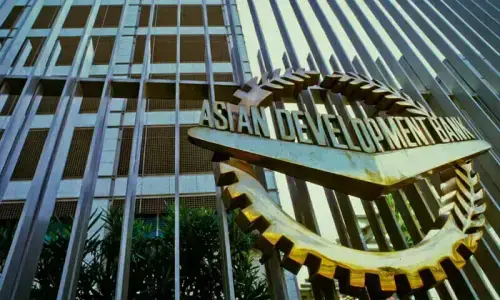Foreign Minister Khawaja Asif on Thursday extended support to Kabul's proposed political process seeking to recognise the Taliban as a legitimate political group, and said Pakistan is ready for one-on-one talks with the Afghan Taliban.
Asif's statements come a day after Afghan President Ashraf Ghani at the second Kabul Process conference offered recognition of the Taliban as a political group and asked the group to take part in peace talks "to save the country".
The offer adds to a series of signals from both the Western-backed government and the Taliban suggesting a greater willingness to consider dialogue.
The Afghan president said the process would be accompanied by coordinated diplomatic support including a global effort to persuade Pakistan, which Kabul has regularly accused of aiding the Taliban, of the advantages of a stable Afghanistan. Ghani also renewed an offer of talks with Pakistan, which Islamabad welcomed.
"The talks between the Taliban and the Afghan government are actually discussions between two political forces, and Pakistan will support it," Asif told a group of China-Pakistan Economic Corridor investors today.
"Pakistan is also ready for one-on-one mediation with the Afghan Taliban," he added.
The foreign minister observed that "some institutions" portray their own interests as being in the greater national interest, and that "this habit will also be changed soon".
"The effects of the 80s and the Musharraf era still exist, Pakistan will not make the same mistakes now and keep American interests above its own," Asif asserted.
The foreign minister said that Pakistan is currently going through an period of uncertainty but he is "completely certain that we will come out of it."
Commenting on the US' recent interest in Pak-India dialogue, Asif said, "The US can have an interest in Pak-India discussions, but before that it should create some balance in its South Asia policy."
Ghani's framework
President Ashraf Ghani has proposed a ceasefire and release of prisoners as part of a range of options including new elections, involving the militants, and a constitutional review as part of a pact with the Taliban to end a conflict that last year alone killed or wounded more than 10,000 Afghan civilians.
“We are making this offer without preconditions in order to lead to a peace agreement,” the president had said at the 'Kabul Process'.
“The Taliban are expected to give input to the peace-making process, the goal of which is to draw the Taliban, as an organisation, to peace talks,” he said, adding that he would not “pre-judge” any group seeking peace.
He said the Afghan government would provide passports and issue visas to Taliban members and their families and open an office for them in Kabul. Ghani said his government would also work to remove sanctions against Taliban leaders.
In addition, Taliban prisoners could be released and their names removed from international blacklists, while security arrangements could be made for Taliban agreeing to join a process of reconciliation. Former fighters and refugees could be reintegrated and provided with jobs.
In return for Ghani’s offer, the Taliban would have to recognise the Afghan government and respect the rule of law, including the rights of women, one of the priorities for Afghanistan’s international partners.
Taliban officials have acknowledged that they have faced pressure from friendly countries to accept talks and said their recent offers to talk to the United States reflected concern that they could be seen to be standing in the way of peace.
Explore: What is Ashraf Ghani's plan to end Afghanistan's 40-year conflict?
































